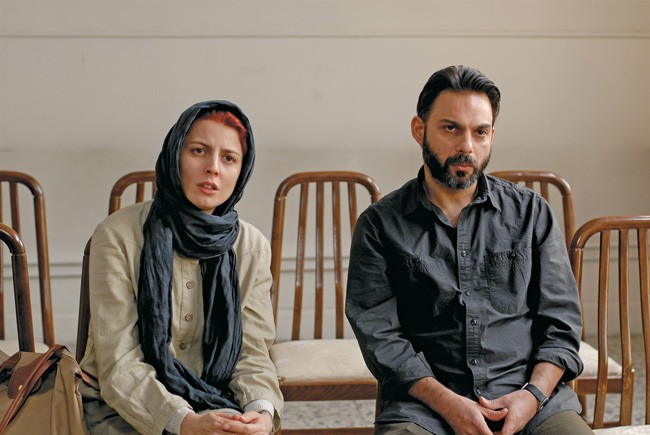A Separation
5 StarsPG-13)
For a while back in the 1990s, Iran was the bees’ knees in world cinema. Films by Mohsen Makhmalbaf, Abbas Kiarostami and Jafar Panahi received significant attention abroad, revealing a powerful film industry thriving under a censorious regime. Nowadays, at least in terms of its movies, Iran is yesterday’s news, having been eclipsed by exciting filmmakers from Taiwan, Thailand and Romania. Makhmalbaf hasn’t had a major release since 2001’s Kandahar, Kiarostami has begun to shoot movies outside of his native country and Panahi is serving a six-year jail sentence for “propaganda against the Islamic Republic.”
If any one film can re-inject life into an entire national cinema, it’s A Separation. This searing, cerebral drama by writer-director Ashgar Farhadi has already scooped up dozens of prizes, including the Best Foreign Language Film trophy at the Academy Awards and holds a staggering 99 percent “fresh” rating on Rotten Tomatoes.
So I’m probably not the first to tell you that A Separation is as powerful as (literally) everyone says it is and then some. It’s about a couple, Nader and Simin, whose 14-year marriage has hit a snag: Simin wants to relocate, but Nader insists on staying where they are so he can care for his Alzheimer’s-afflicted father. Informed that their situation is insufficient grounds for divorce, Simin leaves Nader and their 11-year-old daughter Termeh for what she intends to be a trial separation. Still needing to work while minding his father’s needs, Nader hires Razieh, an orthodox religious woman, to act as caregiver. One tragic incident leads to another, and this is where A Separation plunges into a moral morass of he-said, she-said courtroom squabbles that put an even greater strain on all parties.
“What’s wrong is wrong, no matter who says what,” Nader lectures Termeh after pointing out his objection to one of her school lessons. But as a profound study of justice and relativism, A Separation spends the next hour and a half debunking this kind of black-and-white thinking – initiating Termeh in the ways of the world, where right is sometimes wrong and vice versa. As in 12 Angry Men, what we initially believe about the alleged crimes mutates over time, as heated emotions cool and inconvenient facts pile up.
Like most great works of art, A Separation is simultaneously specific and universal. Implicit in the film is a critique of a culture dominated by absurd religious dogma; Razieh’s problems begin when she has to phone a Muslim hotline for permission to remove her incontinent patient’s soiled trousers. “Does it count as a sin?” she asks, with god-fearing terror. Another of the movie’s conflicts arises because Razieh is forced by her faith to wear a chador. But the central conflicts and revelations translate globally, which is why A Separation is the first Iranian film in years to screen in multiplexes. If you’ve never found yourself in a similar position to one of its characters, consider yourself lucky.
There are no heroes and villains in A Separation, just average world-weary people, exhausted by life’s stresses. Melodrama and didacticism have no place in Farhadi’s documentary-style aesthetic, and audience-pandering explanations and ersatz closure are anathema. Even in its pair of brilliantly unresolved closing shots, Farhadi is too smart a filmmaker to play his cards, but he is a master of suggestion, and his movie is likely to make more intelligent viewers out of us all.

















